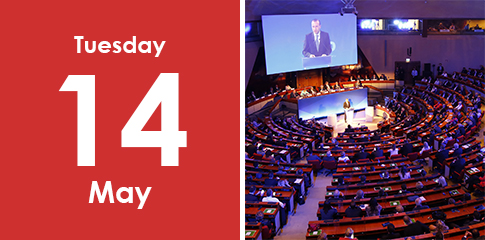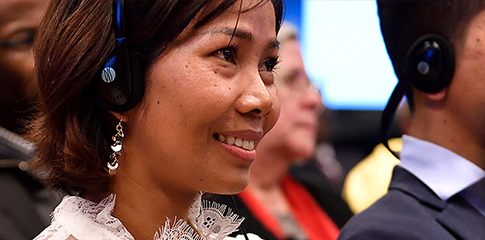Tobacco claims seven million lives each year[1], impacting people at every stage from cultivation to consumption. The negative impact of tobacco is not only about the health of consumers, but also those who cultivate and process it. Recently, it has been demonstrated that tobacco also has a negative impact on the environment – from deforestation and soil degradation for tobacco growing to water and soil pollution from cigarette littering.[2] In addition, tobacco use burdens the global economy with an estimated US$ 1.4 trillion[3] in health-care costs and lost productivity each year.[4] Despite these problems, the tobacco industry, which controls the entire tobacco supply chain, continues to flourish.
Today, however, tobacco is recognized as a serious public health concern requiring action at the global level. Governments around the world have joined together to counter the tobacco epidemic by developing the WHO Framework Convention on Tobacco Control (WHO FCTC), which entered into force 27 February 2005.[5] The treaty was negotiated under the auspices of the World Health Organization (WHO) in 2000 and is now one of the most rapidly and widely embraced treaties in United Nations history, legally binding in 181 ratifying countries.
David vs. Goliath
Tobacco-industry lobbying and interference in policy-making, as well as outright corruption, continue to attempt to weaken the WHO FCTC and its beneficial impact on societies. Therefore, when negotiating the treaty, it was imperative to develop safeguards against such interference.
As a result, the WHO FCTC includes Article 5.3 on the protection of public health policies from commercial and other vested interests of the tobacco industry. Parties to the treaty also adopted specific guidelines to assist them with the implementation of Article 5.3.[6] Those guidelines urge the Parties to implement measures to combat interference in all branches of government that may have an interest in, or the capacity to, affect public health policies with respect to tobacco control.
In practice
Tobacco industry efforts to interfere with the WHO FCTC have been creative. Every two years, the Conference of the Parties (COP) to the WHO FCTC meets to discuss priorities and implementation of the treaty. At numerous sessions, representatives of the tobacco industry have tried – and succeeded – to be part of official delegations to the COP. Or they have overloaded the Secretariat with applications for observer status from various tobacco growers’ groups that represent the interests of the tobacco industry. Sometimes they have submitted requests for media accreditation in order to gain access to the conference venue. They have even tried to switch badges with official delegates so they can enter meeting rooms and attempt to influence decisions.
In response, measures were put in place to protect discussions at the COP from tobacco industry interference, such as requesting governments to observe Article 5.3 and its guidelines when choosing delegates to the COP and requiring observers and the media to sign a Declaration of Interest to guard against conflicts of interest.[7]
Meanwhile, in the United Nations System
The United Nations System also is subject to tobacco industry interference and as a result has taken measures to protect its policy-making process and work. The United Nations Economic and Social Council (ECOSOC) adopted a resolution endorsing the United Nations Model Policy to prevent interference from tobacco industry among the United Nations agencies.[8] The guiding principles of the Model Policy call for unity across the United Nations System and a consistent and effective separation between its activities and those of the tobacco industry in order to preserve the United Nation’s integrity and reputation in promoting development.
The last word
Policy-making is complex, especially when it involves many different actors and interests. In the case of the WHO FCTC, it is important to enhance policy coherence within governments and require that all government sectors relevant to the implementation of the treaty – not only the health sector – comply with the requirements of Article 5.3 of the WHO FCTC, and reflect the same in positions put forward in various governing bodies of the United Nations.
by Carmen Wilen, INP’15
External Relations Officer
WHO Framework
- http://www.who.int/news-room/fact-sheets/detail/tobacco
- Tobacco and its environmental impact: an overview, World Health Organization 2017
- This represent Australia’s 2017 Gross Domestic Products
- http://www.who.int/tobacco/economics/background/en/
- http://apps.who.int/iris/bitstream/handle/10665/42811/9241591013.pdf?sequence=1
- http://www.who.int/fctc/treaty_instruments/adopted/article_5_3/en/
- Decision FCTC/COP8(12)
- http://www.who.int/ncds/un-task-force/events/model-policy-agencies-united-nations1.pdf









0 Comments